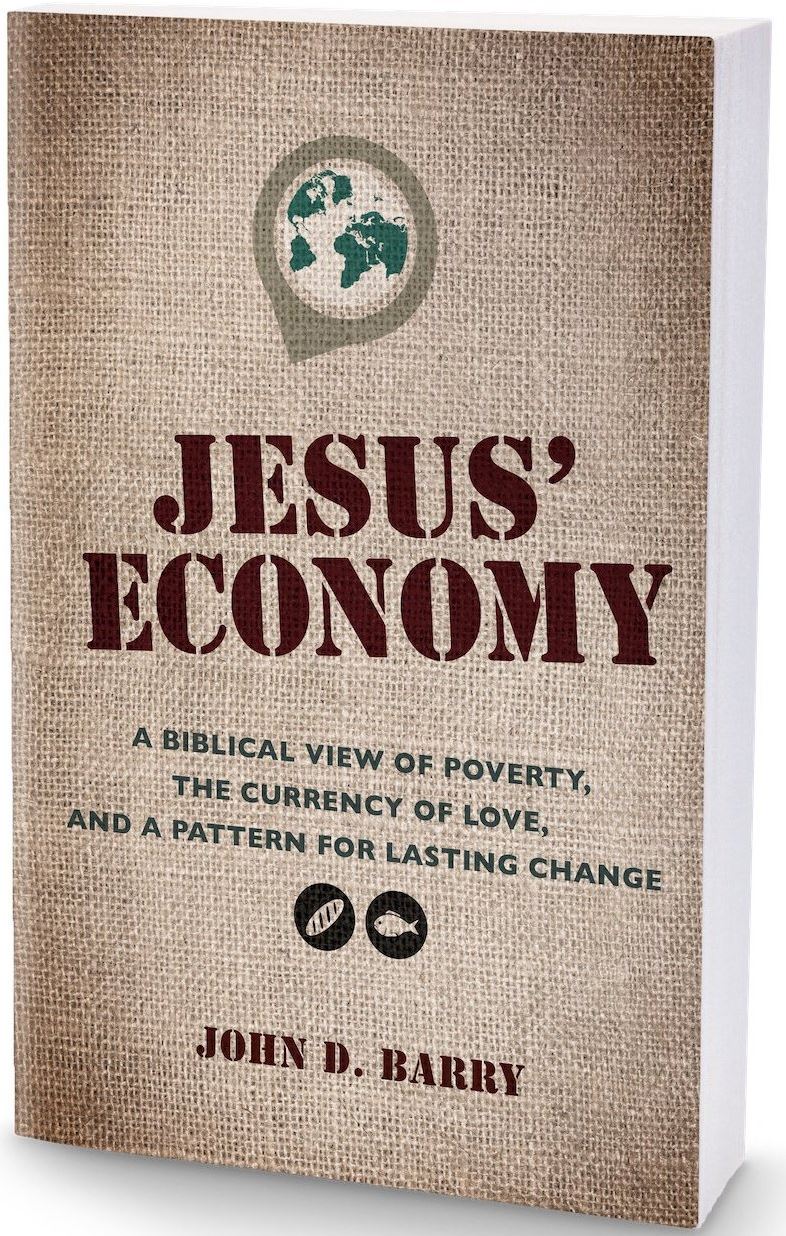What Does the Bible Say about Social Justice?
Share

When you hear the term “social justice,” what emotion do you feel? For some people, the term evokes thoughts of “justice” for them personally or for their community. Other people hear the “social” side of the term and equate it with social action by a government or advocacy group. This has resulted in great confusion over the biblical view of social justice. The biblical view is that Christians should aim to make society more just. How we do so is a different question.
I believe it is the Christian’s responsibility to make our world more just for two reasons. First, I have seen firsthand the injustices in our world through my field research. Most of the issues surrounding extreme poverty are preventable or fixable: such as people having access to clean water, a stable food supply, shelter, and sustainable jobs. That fits the definition of an injustice: a preventable problem that exists because of societal (or global) apathy or corruption. Second, as a biblical researcher, I am convinced that belief in the gospel of Jesus requires action.
I conducted this biblical and field research in preparation for writing my book, Jesus’ Economy: A Biblical View of Poverty, the Currency of Love, and a Pattern for Lasting Change. Here are four patterns that emerged from that research.
1. Justice is central to Jesus’ Gospel
Near the beginning of Jesus’ ministry, he enters a synagogue in Nazareth and reads from the prophet Isaiah. He concludes by saying, “Today this scripture has been fulfilled in your hearing” (Luke 4:21). This is what Jesus said he fulfilled,
“The Spirit of the Lord is upon me, because he has anointed me to bring good news to the poor. He has sent me to proclaim release to the captives and recovery of sight to the blind, to let the oppressed go free, to proclaim the year of the Lord’s favor” (Luke 4:18–19 NRSV).
Listen to those words. Jesus says he came, “to bring good news to the poor … proclaim release to the captives … recovery of sight to the blind … to let the oppressed go free.” If that’s not a cry of justice, I don’t know what is.
The Greek word used in Luke 4:18 for “bring good news” is euangelizō, which is the verbal form of the word usually translated as “gospel” (euangelion). This means we could translate this passage as Jesus saying, “because he [the Lord] has anointed me to bring gospel to the poor.”
Jesus defines his gospel as having a social component. It means the impoverished being lifted up; the “captive” to society’s wrongful norms being released; the physically hurting finding healing; and the spiritually or physically oppressed finding freedom. Social justice is central to Jesus’ gospel.
2. Social justice is central to the prophets
Jesus is literally reading the prophets (Isaiah) in Luke 4:18–19. Jesus’ ministry was defined by the voice of Israel’s prophets. And that voice pointed to a need for societal-level justice and for individuals to live justly (rightly). For Israel’s prophets, belief in God and social justice was inseparable. Consider these three examples:
“Wash! Make yourselves clean! Remove the evil of your doings from before my eyes! Cease to do evil! Learn to do good! Seek justice! Rescue the oppressed! Defend the orphan! Plead for the widow!” (Isaiah 1:16 LEB).
“Thus says Yahweh, ‘Act with justice and righteousness, and deliver the one who has been seized from the hand of the oppressor. And you must not oppress or treat violently the immigrant, the orphan, and the widow. And you must not shed innocent blood in this place’” (Jeremiah 22:3 LEB).
“Remove from me the noise of your songs, and I do not want to hear the melody of your harps! But let justice roll on like the water, and righteousness like an ever-flowing stream” (Amos 5:23–24 LEB).
The common Hebrew word for “justice,” which is used in these three passages, is mishpat. And common is the right word for it. The theme of justice, mishpat, surfaces over and over again in the Old Testament, dominating the Bible as one of its most major themes. The term mishpat is related to the idea of “righteousness” (tsedaqah), as it is used in parallel. For example, of Abraham, God says, “I have chosen him, that he may charge his children and his household after him to keep the way of the LORD by doing righteousness and justice; so that the LORD may bring about for Abraham what he has promised him” (Genesis 18:19 NRSV).
In the biblical view, to live rightly as one of God’s people is to live justly. Abraham was called to “charge his children and his household after him to … righteousness and justice.” This is “the way of the Lord.” To live in Yahweh’s way is to live as a person who evokes and teaches justice.
3. Social justice is central to the Pentateuch
Just as Abraham was called to social justice, God asked Abraham’s descendants—the people of Israel—to treat everyone in their midst in a just manner. Israel’s Law—Exodus, Leviticus, Numbers, and Deuteronomy—contains passages like this one:
“You shall not commit injustice in regulation, in measurement, in weight, or volume. You must have honest balances, honest weights … I am Yahweh your God who brought you out from the land of Egypt” (Leviticus 19:35–36 LEB; compare Deuteronomy 25:13–16).
To be the people of God meant to practice justice. A just system was required for all people, aside from their ethnic origin or social justice. We see this to be the case in passages like these:
“You will not mistreat an alien, and you will not oppress him, because you were aliens in the land of Egypt” (Exodus 22:21 LEB).
“And when an alien dwells with you in your land, you shall not oppress him. The alien who is dwelling with you shall be like a native among you, and you shall love him like yourself, because you were aliens in the land of Egypt; I am Yahweh your God” (Leviticus 19:33–34 LEB).
These two laws are specifically meant to protect refugees and immigrants to Israel. Thus, it was not only Israelites who were protected by God’s system of justice (his Law), it was also outsiders. How should the outsider be treated? “Love him like yourself.” Justice in the Bible means justice for all.
4. The early church practiced social justice
The early church viewed its ministry as a continuation of God’s intent for Israel, in light of Jesus. The savior had come in the form of God incarnate, as Jesus. And now they had to live Christ’s values. Empowered by the Holy Spirit, this is what the early church did:
“They devoted themselves to the apostles’ teaching and fellowship, to the breaking of bread and the prayers. Awe came upon everyone, because many wonders and signs were being done by the apostles. All who believed were together and had all things in common; they would sell their possessions and goods and distribute the proceeds to all, as any had need. Day by day, as they spent much time together in the temple, they broke bread at home and ate their food with glad and generous hearts, praising God and having the goodwill of all the people. And day by day the Lord added to their number those who were being saved” (Acts 2:42–47 NRSV).
The early church members believed so much in the gospel of Jesus that “they would sell their possessions and goods and distribute the proceeds to all, as any had need.” If you had a need in the early church, it was met in a smart and efficient manner. (I detail this pattern of community development in Jesus’ Economy.)
This system was created, and then modified, to be just. For example, Acts 6:1–7 says that when Greek-speaking widows were not being cared for as well as Hebrew- or Aramaic-speaking widows, a new system was put in place. This new system involved the appointment of deacons, each of whom had Greek names (Acts 6:5). Not only was justice restored in terms of food distribution, but the minority group was now represented in leadership.
This effort toward full equality and justice for all was practiced throughout the global church. For example, Paul the apostle said to the Galatian church, “There is no longer Jew or Greek, there is no longer slave or free, there is no longer male and female; for all of you are one in Christ Jesus” (Galatians 3:28 NRSV). Paul then practiced this belief by using his power to empower other people. While imprisoned, Paul uses the last bit of his power and influence to tell a wealthy man named Philemon to receive his runaway debt-slave as “no longer … a slave but more than a slave, a beloved brother” in Jesus (Philemon 16). The gospel leans toward social justice. God’s people are meant to use their power to break down social barriers.
Social justice is a distinguishing factor of being Christian
What would happen if the global church was to emulate the type of self-sacrificial love practiced by the early church? What if we valued a gospel that involved belief and action? That’s what Jesus’ gospel is. Imagine what the world would think of Christianity if the first thing people saw was self-sacrificial love? The currency of love matters far more than the currencies of the world.
Jesus even goes so far as to say that when he returns that he will distinguish his followers from those who do not know him by how they treated the impoverished, marginalized, outsiders, captives, and outcasts. On the day of judgment—when ultimate justice comes to the whole world—Jesus will say:
“Come, you that are blessed by my Father, inherit the kingdom prepared for you from the foundation of the world; for I was hungry and you gave me food, I was thirsty and you gave me something to drink, I was a stranger and you welcomed me, I was naked and you gave me clothing, I was sick and you took care of me, I was in prison and you visited me.”
One may then ask Jesus,
“Lord, when was it that we saw you hungry and gave you food, or thirsty and gave you something to drink? And when was it that we saw you a stranger and welcomed you, or naked and gave you clothing? And when was it that we saw you sick or in prison and visited you?”
Jesus says he will reply: “Truly I tell you, just as you did it to one of the least of these who are members of my family, you did it to me” (see Matthew 25:31–46). As you do for the “least of these,” those whom society least values, you do for Jesus.
Photo credit: Unsplash/Bill Oxford
